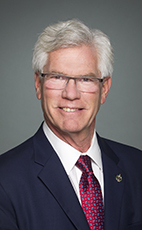Mr. Speaker, in response to (a), up to $500,000.00 Canadian has been budgeted to support the work of the panel.
In response to (b), all meetings will take place with stakeholders.
In response to (c), on June 30, 2016, the panel announced a series of roundtable and town hall meetings along the Trans Mountain expansion pipeline and marine corridors in Alberta and British Columbia. Further information on meeting times and exact location was released as it became available. All of the panel’s publicly announced meetings were open to the public. Information on these meetings is available on the panel’s web pages and was communicated to the public through traditional and social media.
In response to (d)(i) and (ii), the panel held 44 public meetings in Alberta and British Columbia communities as follows: July 7, 2016, in Calgary, Alberta; July 8, 2016, in Edmonton, Alberta; July 9, 2016, in Jasper, Alberta; July 19 and 20, 2016, in Kamloops, British Columbia; July 21, 2016, in Chilliwack, British Columbia; July 26, 2016, in Abbotsford, British Columbia; July 27 and 28, 2016, in Langley, British Columbia; August 9 to11, 2011, in Burnaby, British Columbia; August 16 to 18, 2016, in Vancouver, British Columbia; August 19, 2016, in North Vancouver, British Columbia; and August 22 and 23, 2016, Victoria, British Columbia
In response to (d)(iii), all of the panel’s publicly announced meetings were open to both invited speakers as well as members of the public. Over 2,400 Canadians attended these public meetings, and more than 650 made presentations to the panel.
In response to (d)(iv), over 200 stakeholder groups were invited to meet with the panel, regardless of their previous status before the National Energy Board. Input will also be accepted via email or an online questionnaire until September 30, 2016.
In response to (d)(v) (vi) (vii) (viii), up to $500,000.00 Canadian has been budgeted to support the work of the panel. This amount includes costs outlined in subquestions (v) to (viii).
In response to (e), as of September 7, 2016, total spending on the panel was approximately $245,000.

